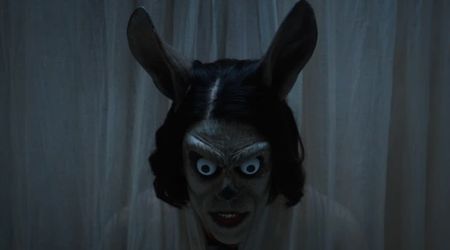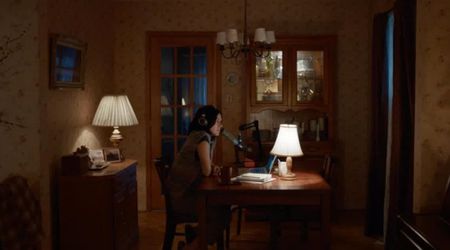'Ma Rainey's Black Bottom' is a gut-wrenching yet faultless addition to Chadwick Boseman's legacy, here's why

In August 2020, the world mourned as news of actor Chadwick Boseman's death was announced. He had been battling cancer, and throughout it all, his indomitable spirit won because today, in his last screen role in 'Ma Rainey's Black Bottom', Boseman's legacy continues to speak for him. The film by itself is a reimagination of August Wilson's play 'Ma Rainey's Black Bottom'.
It sees Viola Davis play the role of Ma, while Boseman plays the role of Levee, who is a cornetist in Rainey's quartet member band. At the center of it, the movie is about Ma Rainey not willing to give over the control of how her songs will be recorded over to someone else and about a young man Levee who has designs on Ma's closing number 'Ma Rainey's Black Bottom' which he wants to rearrange for the White record producer and manager of the studio.
The conflict arises when Ma is not ready to change the way she performs the song or records her music and the ensuing battle doesn't end too well for Levee. It is the journey toward that one final blow of a confrontation that builds our expectations up.
From the monologue of Boseman as Levee as he tells his bandmates why they would do better to never judge him by how he treats White men, to the final confrontation with Ma when he calls her out for not letting fresh ideas in — the heart of the film lies in the depiction of these characters.
Be it Davis' portrayal of Ma who is confident in her talent and sensuality as she is with her music, or Levee's as an ambitious — sometimes mischievous, sometimes electric and sometimes gut-wrenchingly emotional — it all comes down to portrayal and that is why this film is a faultless addition to Boseman's legacy.
It is not only in his acting, but the music and every note on the trumpet that speaks to his performance and alleviates it because the film is more than just music. It is about the pain, the struggles and the very real insecurities that each of this band's members buries in their music that speaks volumes. Levee is introduced as an ambitious yet, light-spirited cornetist who is seen as someone young and only looking for fun, at least in the eyes of his much older band members.
In fact, Levee's choice to splurge on bright yellow stylish shoes inspires one of the band members to sing a song about how all that colored men want to do is have fun. Of course, this is a nod to the prejudice that was prevalent at the time about how Black men were mostly out looking for fun and trouble and nothing else. However, Levee is not what he wears and what he speaks.
Levee has a heart that beats with ambition and to reach his goals, he decides that he will let the White men's racism in the business slide. His relationship with Sturdyvant (Jonny Coyne), who happens to be the manager of the studio at which Ma is all set to record her songs is purely to support Levee's ambition and not much else.
So when Levee smiles at Sturdyvant and speaks to him with civility that is uncharacteristic of him, his bandmates end up ribbing him for being spooked by White men. At first, he disagrees and tries to explain that if a White man to cross lines with him, he is capable of teaching them a lesson, but when his bandmates do not stop, Levee loses it.
In a burst of rage, Levee begins, "Levee got to be Levee. He don't need nobody messing with him about the White man. Cause you don't know nothing about me. You don't know Levee. You don't know nothing about what kind of blood I got. What kind of hear I got beating here." In a bone-chilling monologue, we hear Levee recall what happened to his mother and father when he was young after a group of White thugs attacked the land that his father had worked hard to purchase.
He recalls how there was nothing a young boy could do and explains, "Folks called him an uppity n**** because he done saved and borrowed to where he can buy this land and be independent." However, after his mother was sexually assaulted by the White men — as indicated in this monologue — which happened when his father had been away for business, Levee hadn't known what would await him and his family.
He then tells the members that his father decided to sell his property and move. He decided that he would sell it to the same man who had attacked Levee's mother. Levee explained how there was not much an eight-year-old could do when a group of men barge into the house and attack his mother. However, he knew where his father had kept the hunting knife so what he did instead was to go ahead and get his hands on that.
He said, "I am going to show you how spooked up by the White man I was. I tried my damnedest to cut on them's throat. I hit him on his shoulder, he reached back and grabbed hold of that knife and whacked me across the chest with it."
He then opens his shirt to reveal a grotesque wound on the chest that indicates how fatal it would have been. He also says that the White men only left his mother alone after striking the boy because they were worried that the young Levee would bleed to death.
When his father returned and decided to move on, he sold the land that he owned to the same man who had attacked his mother with a smile on his face. "My daddy went and smiled in one of them crackers who had been with my mama. Smiled in his face and sold him our land. We moved over our relations in Caldwell. He got us settled in and then he took off one day. I ain't never seen him since."
Until then, all that we could see was despair. At this point, there is a hint of hope and a smile as Levee adds, "He sneaked back. Hiding up in the woods. Laying to get them eight or nine men. He got four of them before they got him. They tracked him down in the woods. Caught up with him, hung him, set him afire. My daddy wasn't spooked up by the White man, no sir. And that taught me how to handle them."
"I seen my daddy go up and grin in the crackers face. Smile in his face and sell him his land. All the while, he's planning how he's gonna get him and what's he gonna do to him. That taught me how to handle them. So you all just back up and leave Levee alone about the White man. I can smile and say 'Yessir' to whoever I please. I got my time coming to me."
Even as Levee's monologue comes to an end and segues into Toledo's little speech about what can a colored man do, the horrors that are reflected in Levee's eyes are real and so is the hope. The fact that Boseman could bring this alive through his performance is what makes it Oscar-worthy, and it is also this same thing that breaks our heart because such a brilliant performance is not something we will get to experience in a new setting. As his legacy lives on, he will be missed.
Watch 'Ma Rainey's Black Bottom' on Netflix on December 18, 2020.










